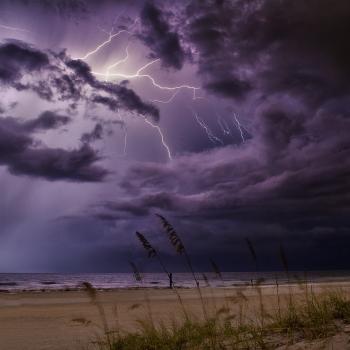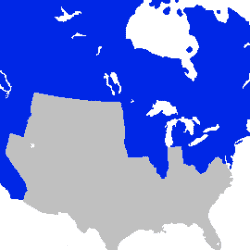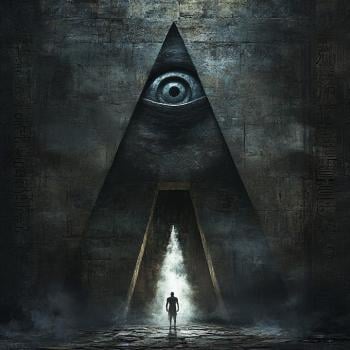 The groundswell that began in Tunisia has ousted Hosni Mubarak in Egypt, and is spreading across the Middle East. This moment may well represent a historic turning point for the Muslim world . . . or it may not. The choice is up to new leaders of the Middle East, who will (hopefully) continue to topple authoritarian governments, or at least extract substantial reforms. Now is the time for the Muslim world to rise up—but not just for democracy. As we have seen in China, "democracy" is a sham without real religious liberty. Islam's detractors say that Muslims are incapable of embracing religious liberty, because Islam is an inherently coercive faith. Let us hope that events will prove that assumption untrue.
The groundswell that began in Tunisia has ousted Hosni Mubarak in Egypt, and is spreading across the Middle East. This moment may well represent a historic turning point for the Muslim world . . . or it may not. The choice is up to new leaders of the Middle East, who will (hopefully) continue to topple authoritarian governments, or at least extract substantial reforms. Now is the time for the Muslim world to rise up—but not just for democracy. As we have seen in China, "democracy" is a sham without real religious liberty. Islam's detractors say that Muslims are incapable of embracing religious liberty, because Islam is an inherently coercive faith. Let us hope that events will prove that assumption untrue.
Those who see Islam as a uniquely oppressive religion fail to note that there was a time when Christians brutally suppressed religious dissent, too. Christians began as persecuted sectarians who hoped only to win the freedom to worship. They got their wish when Constantine issued the Edict of Milan in 313. But that development set the stage for Christianity to become the state religion of the Roman Empire, and later, for the Catholic powers of medieval Europe. The Catholic Inquisitions were an extreme version of the suppression of religious dissent, and the wars of the Reformation led both Protestants and Catholics to stifle unorthodox sects.
The Puritans of New England, too, outlawed dissenting religious groups such as Baptists, Quakers, and Anglicans. They saw it as a religious duty to expel dissenters such as Anne Hutchinson and Roger Williams, and in the most tragic case, they hung three recalcitrant Quakers in the years 1659-1661. Freedom of religion, to the early Puritans, meant freedom to leave New England if you did not agree with them.
America's pattern of religious persecution only gradually abated during the 18th century. Until the eve of the American Revolution, state-sanctioned maltreatment of dissenting Christians continued. A number of Baptists were put in jail for illegal preaching in Virginia as late as the 1770s, a development that leaders such as Patrick Henry and James Madison watched with disgust. Their revulsion shaped the 1776 Virginia Declaration of Rights, which affirmed not just "toleration" of dissenters, but the "free exercise of religion." Baptists continued to insist, however, that real religious liberty meant not only stopping the abuse of dissenters, but abolishing official state denominations. This was the triumph of the First Amendment's ban on an "establishment of religion": the United States, unlike England, would not have a national church.
Most Muslim-dominated countries have failed to make the transition to full religious liberty. The reasons why are historically complex. In the early modern period many Muslim countries actually afforded greater protections to religious minorities than Christian countries did (evangelism among Muslims was always problematic, though). But today, Muslim-dominated countries often smother religious dissent and allow minority Muslim and Christian sects to be viciously persecuted. Those who would turn from Islam to other faiths commonly face flagrant harassment or even execution.
Some Muslim leaders have, of course, gone on record favoring religious liberty, but with the sea change happening now in the Muslim world, there has never been a better chance to apply the freedom principle. If fundamentalist Muslims hijack these uprisings and suppress adherents of different beliefs (such as happened in the aftermath of the Iranian Revolution), it will be a great tragedy. But if moderate Muslims do not insist upon religious liberty as an essential part of any new democratic order, it will be perceived as an indictment of Islam itself.
I can hear Islam's critics now: "Have you ever read the Quran? Muslims cannot honestly support religious liberty." Remember, Christians have their coercive, violent passages, too. (Ever read the book of Joshua?) Sacred verses commanding the destruction of enemies have always required interpretation. During the 18th and 19th centuries, Christians became almost universally convinced that the Old Testament commands to destroy the Canaanites did not represent a mandate for all time, but only for ancient Israel.
I pray that the Muslim world will condemn violent jihadism and the persecution of religious minorities and converts. As a recent New York Times editorial put it, democracy is now becoming halal (or permissible under Islamic law). Hopefully religious liberty will become halal, too.
2/23/2011 5:00:00 AM





